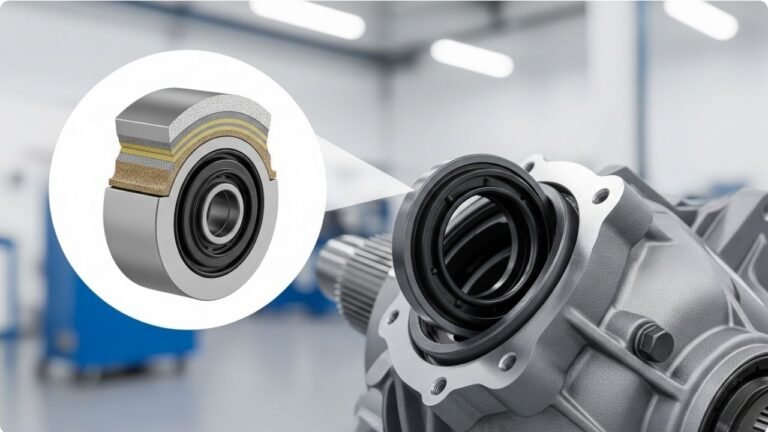Can Low Oil Cause Car to Stall?

It was a quiet Sunday afternoon. I was cruising down the road, windows down, music playing, and coffee in hand. Suddenly, my car sputtered and died—right in the middle of nowhere. No warning lights. No odd noises beforehand. Just dead silence. I stood there scratching my head, wondering what went wrong. Later, the mechanic said something that left me stunned: “Your engine oil was dangerously low. That’s what caused the stall.”
That moment led me down a rabbit hole of research and reflection. Can low oil really cause a car to stall? Or was my case just bad luck?
Well, buckle up, because we’re diving deep into how low oil can cause a car to stall, and why this often-overlooked detail could make or break your driving experience. Whether you’re a new driver or a seasoned pro, this guide will help you avoid a breakdown and keep your car purring like a kitten.
What Does Engine Oil Actually Do?

Think of engine oil like blood for your car’s engine. It circulates, protects, cools, and cleans. Without it, the metal parts inside your engine would grind together, heat up, and wear out—fast.
Here’s what engine oil does:
Reduces friction between moving parts
Cools the engine by carrying heat away
Cleans out sludge and debris
Seals small gaps in the engine
Protects against rust and corrosion
Without enough oil, it’s like running a marathon without water—things go bad quickly.
| Function | Why It Matters |
|---|---|
| Lubrication | Prevents wear and tear of internal parts |
| Heat Reduction | Avoids overheating and engine seizure |
| Debris Removal | Keeps engine clean from metal shavings/sludge |
| Oxidation Prevention | Prevents rust and prolongs engine life |
| Sealing Gaps | Enhances engine compression and performance |
That’s why even a small drop in oil level can be dangerous.
So, Can Low Oil Cause Car to Stall?
Yes—And Here’s Why You Should Be Worried
The short answer: yes, low oil can cause a car to stall. And not just occasionally—it can happen suddenly and without warning.
When your engine doesn’t have enough oil, it starts to overheat. The metal parts inside expand and begin to seize. If left unchecked, this can cause the engine to shut off abruptly, especially when idling or at low speeds.
Here’s what might happen when oil is low:
The oil pump struggles to circulate oil
Engine components overheat and expand
Sensors pick up the danger, triggering a stall
Hydraulic lifters collapse, affecting valve timing
Combustion becomes unstable, and the engine stalls
It’s like your engine having a panic attack—it shuts down to avoid total destruction.
How to Tell If Low Oil Is the Reason for a Stall
Know the Signs Before It’s Too Late
Sometimes your car sends warning signs before stalling. But we often miss them or chalk them up to something minor.
Look out for these red flags:
Oil pressure warning light flickering or staying on
Knocking or ticking noises from the engine
A burning oil smell
Poor engine performance (slow acceleration, rough idling)
Increased engine temperature
These are your car’s version of a cry for help. Don’t ignore them.
Also, check your oil level using the dipstick. If it’s below the minimum line, you’ve found your suspect.
Pro Tip: Always check your oil when the engine is cold and parked on level ground.
Real-Life Scenario: How It Feels When Your Car Stalls from Low Oil
Let me take you back to that moment when my car stalled. There was no engine light. No smoke. Just this soft hiccup—and then silence. I thought maybe I ran out of gas, but the tank was half full. A tow truck, a mechanic, and a bill later, I learned my engine oil was critically low.
It hadn’t leaked. I just hadn’t checked it in months. And I drive a lot.
This was a hard lesson in basic car care, but also a wake-up call. Low oil isn’t just a minor maintenance issue—it’s a stall waiting to happen.
What Happens Inside the Engine When Oil Runs Low?
A Battle Between Metal, Heat, and Gravity
Let’s look inside your engine for a second. Imagine hundreds of metal parts—pistons, cams, valves—all moving at lightning speed. Now remove the oil.
What happens?
Friction skyrockets, causing heat to build
Heat causes metal to expand and warp
Moving parts can lock up or grind against each other
The engine becomes sluggish and eventually dies
No oil = no cushion. It’s a metal-on-metal horror show in there. Not to mention, vital systems like variable valve timing rely on oil pressure to work properly. Without it, your engine becomes confused—and confused engines don’t last long.
How Long Can You Drive With Low Oil Before It Stalls?
Every Second Counts When Oil Is Missing
Honestly? Not long.
Depending on how low the oil level is, your car might:
Run poorly for a few minutes
Stall immediately in extreme cases
Keep running but cause internal damage that gets worse each mile
If you’re lucky, you’ll get a warning light first. But modern engines are built with tight tolerances—they depend on a steady supply of oil to function correctly.
So if you suspect your oil is low, don’t gamble. Check it. Top it up. Or get a change. Waiting too long could lead to a seized engine, which is about as expensive as it sounds.
Why Does Engine Oil Get Low in the First Place?
Understanding the Usual Suspects Behind Oil Loss
You might be wondering: “If I haven’t seen any leaks, where’s the oil going?”
Here’s what might be happening:
Worn piston rings – let oil burn in the combustion chamber
Leaky valve seals – slowly drain oil without visible leaks
Oil pan or gasket leaks – drip out while parked
High mileage engines – naturally consume more oil over time
Old oil – breaks down faster and burns off
Sometimes, oil just burns away over time. And if you skip regular checks, you won’t even know it’s missing until it’s too late.
How to Fix Low Oil Problems Before They Stall Your Car
Simple Actions That Can Save Your Engine (and Your Wallet)
So, what can you do when your engine oil is low? The fix is usually quick—but only if you catch it early.
Here’s a step-by-step guide:
Pull over safely and shut off the engine.
Open the hood and wait a few minutes for the engine to cool.
Locate the dipstick (usually with a yellow or orange loop).
Pull it out, wipe clean, reinsert, then pull again to check the level.
If oil is below the “low” line, add more.
Use the recommended oil type and grade (check your owner’s manual).
Pour slowly. Wait a minute. Check the level again. Don’t overfill.
If your car keeps losing oil quickly or stalls even after topping up, there may be a leak, burning issue, or sensor malfunction. In that case, take it to a mechanic ASAP.
Important: Low oil isn’t always about forgetting to change it. Sometimes it’s about something bigger hiding under the hood.
Can Synthetic Oil Help Prevent Stalling?
Why What You Use Matters More Than You Think
If you’re wondering whether synthetic oil can reduce the chances of stalling, the answer is yes—but it’s not magic.
Here’s why synthetic oil is better:
Resists thermal breakdown (less evaporation)
Flows better in cold and hot temperatures
Keeps your engine cleaner with better additives
Lasts longer than conventional oil
Reduces wear, helping moving parts stay lubricated
That said, synthetic oil won’t fix a leak or repair worn seals. It’s still essential to check your oil regularly and not just assume your oil will take care of itself.
Think of it like premium fuel—it helps, but maintenance is still king.
Importance of Oil Sensors and Warning Lights
Your Car’s Way of Talking to You—Don’t Ignore It
Modern cars are smart. They’re packed with sensors designed to warn you before disaster strikes. But many drivers ignore those little blinking lights on the dashboard.
Here’s what to look out for:
Oil Pressure Light – Often looks like a dripping oil can
Check Engine Light – Can appear for a variety of oil-related issues
Temperature Gauge – Spikes in heat might mean poor lubrication
If you see any of these, stop the car and check your oil. Sometimes it’s a faulty sensor—but it’s better to be safe.
You can also use OBD-II scanners to read engine codes and verify if oil pressure or temperature is behind the stall.
Never assume it’s just a sensor issue. Low oil pressure is deadly for engines.
FAQs: Common Questions About Low Oil and Engine Stalls
Here are some quick answers to the most frequently asked questions.
1. Can low oil cause a car to stall while driving?
Yes. When oil gets too low, friction increases and the engine can overheat or seize up, causing it to shut off mid-drive.
2. Can low oil cause a car not to start?
Indirectly, yes. If the engine suffered damage from previously running with low oil, it may not start at all.
3. Will topping up oil fix the stalling issue immediately?
If the engine hasn’t been damaged, yes. But if internal components were harmed, the stalling may continue.
4. Is it okay to drive with low oil for a few days?
No. Even a few miles can cause irreversible engine damage if oil is too low.
5. What should I do if my car stalls suddenly?
Pull over safely, turn off the engine, check oil levels, and call for help if needed.
6. How often should I check my oil?
At least once every 2-3 weeks, especially if your car is older or used frequently.
7. Can an oil change prevent engine stalls?
Absolutely. Fresh oil maintains proper pressure, lubrication, and performance.
8. Why does my car stall only when idling?
Low oil can affect engine timing and hydraulic lifters, making idling unstable.
Final Thoughts: A Small Detail That Makes a Big Difference
It’s strange, isn’t it? Something as simple as low oil can bring a powerful car to its knees. And yet, it happens all the time.
Your car is like a living, breathing machine. It needs care, checkups, and attention—just like us. And oil? That’s its heartbeat.
Don’t wait for your engine to stall in the middle of nowhere to take it seriously. Make it a habit to check your oil, listen to your car, and react to the little things. It’s not just about saving money—though that’s a bonus. It’s about keeping you safe and your journeys smooth.
Because when your car is happy, your adventures never have to pause.






